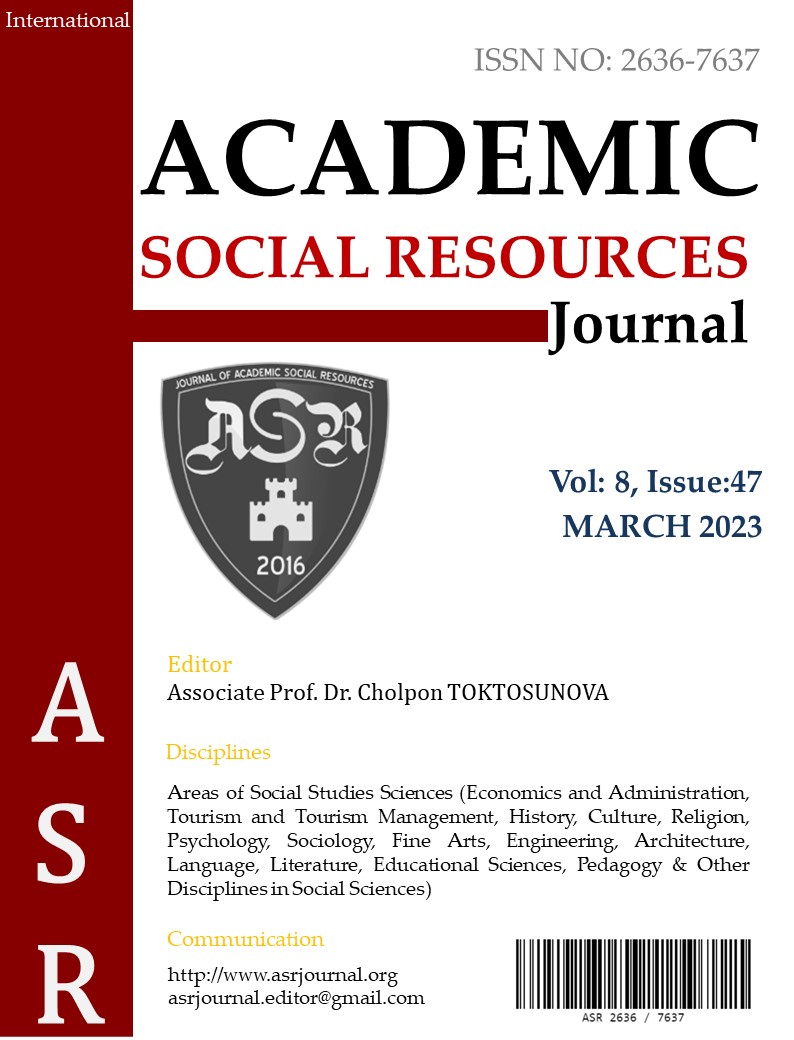Yoksullukla Mücadelede Etkisi Tartışılan Sosyal Sermaye Kavramı ve İşlevleri Üzerine Teorik Bir İnceleme
Author :
Abstract
Sosyal Bilimlerde kullanılan kavramların tanımlanması, kullanım alanlarının ve işlevlerinin ortaya konulması; bu kavramların açığa çıkardığı olumlu ve olumsuz dışsallıkların tespit edilmesi, bu kavramların kullanıldığı bilimsel çalışmaların anlaşılırlığı ve daha fazla kişiye ulaşması açısından önem arz etmektedir. Bu çalışmada 1990’lı yıllardan günümüze kadar başta sosyoloji alanı olmak üzere birçok sosyal bilim dalında gün geçtikçe daha fazla sayıda bilimsel çalışmaya konu olan ve günümüzde yoksullukla mücadeledeki etkisi tartışılan “sosyal sermaye” kavramı inceleme konusu edilmiştir. Önce 19.yüzyıl düşünürlerince ardından da Jacobs, Hanifan, ve Loury gibi araştırmacılar tarafından çözümlenen sosyal sermaye kavramına olan ilgi 1980’li yıllardan itibaren Bourdieu ve Coleman gibi sosyologlar ve siyaset bilimci Putnam’ın çalışmaları ile hız kazanmış, ardından bu ilgi sosyal bilimlerin diğer alanlarına da yayılarak çok sayıda çalışmaya konu olmuştur. Sosyal sermaye kavramı, 1980’li yıllardan önce makalelerde anahtar kelime olarak toplamda 20 defa kullanılmasına rağmen, yayınlanan çalışmaların sayısı gittikçe artarak 1991-1995 aralığında 109’a ve 1996-1999 yılları arasında da 1003’e yükselmiştir. Dünya Bankası’nın toplumların kalkınmasındaki rolü nedeniyle sosyal sermaye kavramına verdiği önem ve IMF ve UNDP gibi uluslararası kuruluşların kalkınmada bu kavrama atfettikleri işlevlerin etkisiyle, 2000’li yıllarda kavram, araştırmacıların ilgisini çekmeye devam etmiş ve kavram ile ilgili literatüre yapılan katkıların yükselişi devam etmiştir. Bu çalışma boyunca sosyal sermaye kavramının ifade ettiği sosyal gerçekliğin tarihsel açıdan hangi kavramlarla ifade edildiği, sosyal sermaye kavramını ele alan sosyal bilimcilerin bu kavramı hangi bağlamlarda ele aldığı, sosyal sermaye kavramının ne tür işlevler görebileceği, sosyal sermaye kavramının hangi eleştirilere maruz kaldığı ortaya konulmaya çalışılmıştır.
Keywords
Abstract
Defining the concepts used in Social Sciences, revealing their usage areas and functions; determining the positive and negative externatilities revealed by these concepts is important fort he the clarity of scientific studies in which these concepts are used and for reaching more people. İn this study, the concept of “Social Capital”, which has been the subject of more and more scientific studies in many social sciences, especially in the fielde of sociology, has been examined since the 1990s. The interest in the concept of social capital which was first analyzed by 19th century thinkers and then by researchers such as Jacobs, Hanifan, and Loury, gained momentum with the studies of sociologists such as Bourdieu and Coleman and political scientist Putnam since the 1980s, and then this interest was extended to other areas of social sciences. Although the concept of social capital was used as a keyword in articles 20 times in total before the 1980s, this number gradually increased to 109 between 1991-1995 and to 103 between 1996-1999. The importance given to the concept of social capital by the World Bank due to its role in the development of societies and the effects of the functions attributed to this concept by international organizations such as the IMF and UNDP, the concept continued to attract the attention of researchers in the 2000s and the rise of contributions to the literature on the concept continued. Throughout the study, it has been tried to reveal in which concepts the social reality expressed by the concept of social capital is expressed historically, in which contexts social scientists who deal with the concept of social capital deal with this concept, what kind of functions the concept of social capital can serve, and what criticisms the concept of social capital has been subjected to.





